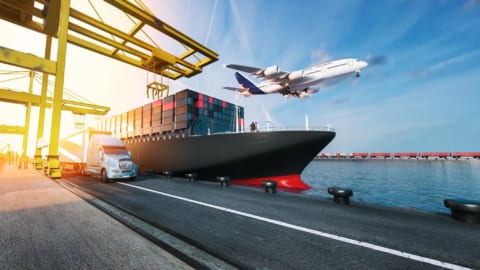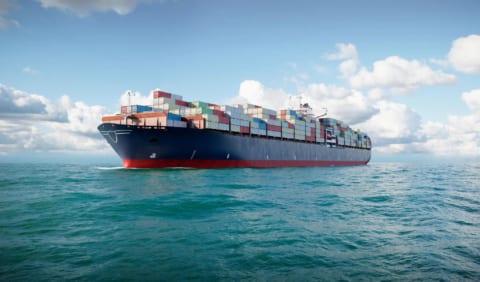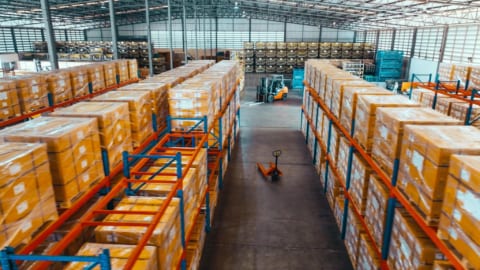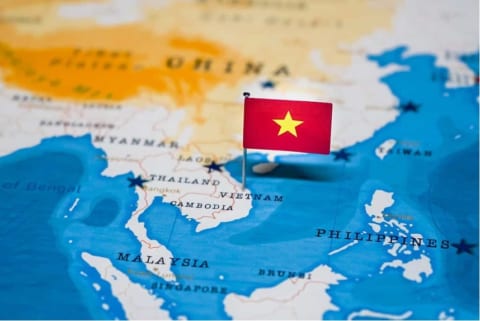South Korea’s Fair Trade Commission imposed fines totaling 96.2 billion won against 23 Korean and foreign shipping companies charged with colluding on freight rates, the antitrust regulator said in a statement.
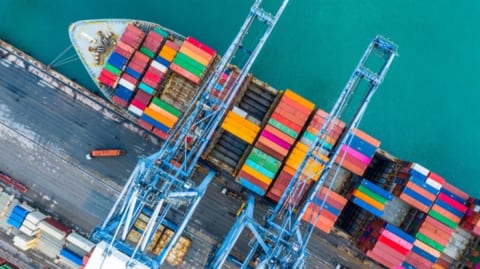
South Korea’s Fair Trade Commission
South Korea’s Fair Trade Commission (KFTC) is investigating freight rates on routes between South Korea and Japan, raising the prospect of another big fine.
According to Korean media reports, the KFTC unveiled that it is investigating the freight rates of South Korea-China routes and Korea-Japan ones, whether there is also collusion between the consolidation companies’ monopoly, market price manipulation, and illegal behavior. The Commission will impose additional penalties if it is found that the shippers have colluded with each other to violate the relevant standards under the Korean Maritime Transport Law.
23 Shipping Companies Would be Fined
On 18 Jan 2022, South Korea’s antitrust regulator stated that it has decided to impose a combined fine of 96.2 billion won ($80.7 million) in fines on 23 Korean and foreign shipping companies for their collusion to fix freight rates.
Since 2018, the Fair Trade Commission (FTC) has been investigating allegations related to leading shipping companies in South Korea including Hyundai Merchant Marine Co., Ltd (HMM) and 22 local and foreign shippers who colluded to fix higher sea freight rates for Southeast Asian routes.
According to the regulator, the shippers -12 South Korean and 11 foreign -colluded to set the sea freight of container cargo services 120 times between December 2003 and December 2018 in a bid to hike the minimum level of freight rates and other charges.
These shippers claimed they are allowed to take collective actions on freight rates and other contract conditions for transportation under the country’s maritime shipping act.
However, the regulator determined that their acts were “illegal” because they failed to meet certain criteria which are permissible under the law.
To be recognized as legitimate collective actions under the shipping act, shipping lines must report their moves to the maritime minister within 30 days. They should also adequately discuss the move with a group of freight owners before making a report.
South Korea’s Fair Trade Commission expected its latest decision to help prompt shipping lines to take collective actions on freight rates under due process and prevent trading companies from sustaining financial damage.
Korean shipper Korea Marine Transport Co. Ltd (KMTC) will be tentatively slapped with the biggest fine of 29.6 billion won and Hyundai Merchant Marine Co., Ltd (HMM) will face a fine of 3.6 billion won. Sealand Maersk Asia Pte Ltd.- A Singapore-based shipping company is expected to be fined 2.37 billion won.
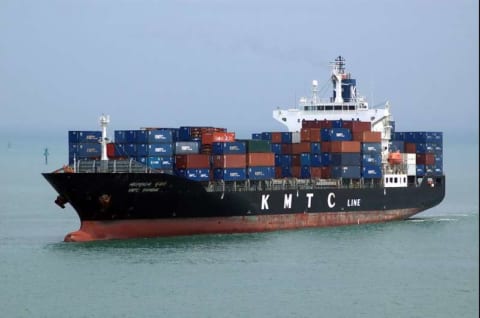
Korean shipper Korea Marine Transport Co. Ltd (KMTC) will be fined with the biggest fine of 29.6 billion won.
But the decision of the regulator appears to be lenient, given that it informed the shippers in May in a review report that it may impose up to 800 billion won in fines for the violation of the fair trade act.
“In deciding the level of fines, the regulator fully took account the nature of the shipping industry,” FTC chief Joh Sung-wook said at a press briefing.
The FTC announced that it will continue to take stern actions against suspected illegal collusion on freight rates in the shipping sector. The latest collusion case triggered fierce protest from an association of shippers and led to tensions at the parliamentary level over a push to revise the maritime shipping act. Local shipping terms responded if the regulator imposes what they see as an excessive fine, it could deal a blow to the country’s shipping industry.
A ruling party lawmaker proposed a revised bill last year that says collective actions by shippers will not be subject to the antitrust act, in a move to put pressure on South Korea’s Fair Trade Commission.
The maritime ministry and a related parliamentary committee sided with the shipping sector, saying the shippers’ actions were justifiable collective ones under the shipping law.
The antitrust regulator expressed opposition to the bill, saying the legislation move runs counter to global trends.
Impact of KFTC’s Punishment
KFTC states that there are two methods for container shipping companies to increase rates: an increase in the agreed minimum Rate (AMR) and a rate restoration (RR), which is usually added during peak seasons. The 23 shippers were punished as they reported only 18 RRS on southeast Asian routes and did not report AMR.
South Korea’s Ministry of Maritime Affairs and Fisheries disagreed, saying it had never asked container shipping lines to report AMR because ARM was considered an incidental agreement. In October 2021, South Korea amended its Shipping Acts, allowing the Ministry of Oceans and Fisheries to regulate joint operations of container shipping companies.
KFTC said this is against the global trend. The Korea Shipping Association believes that the KFTC’s punishment will have a serious impact on the shipping industry of South Korea and run counter to the government’s plan to revitalize the shipping industry.




